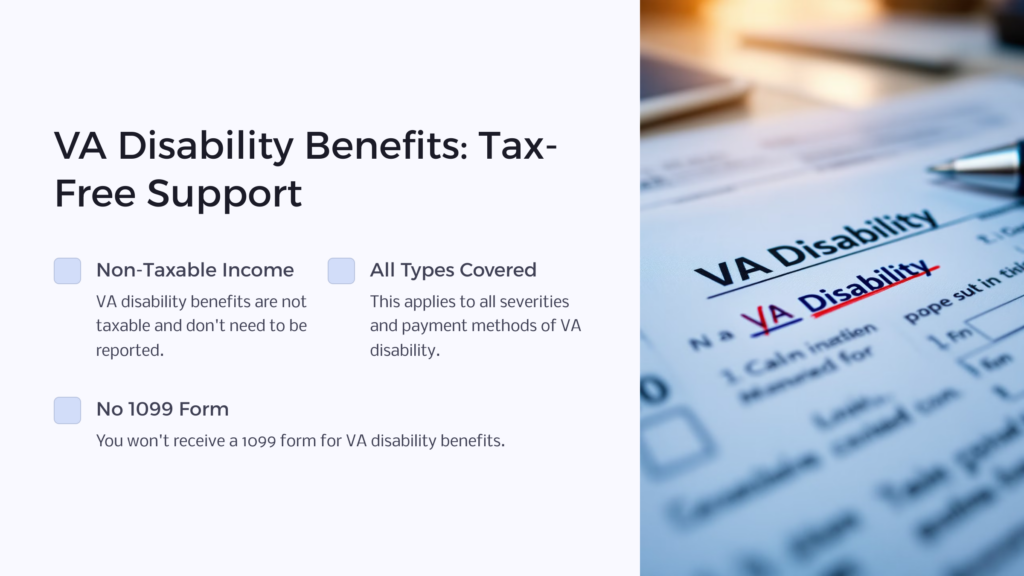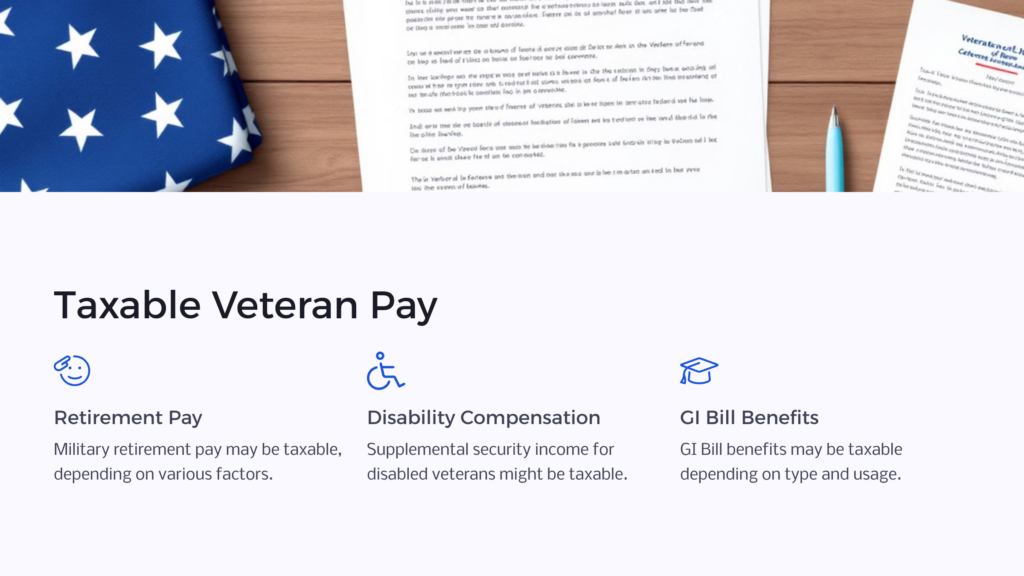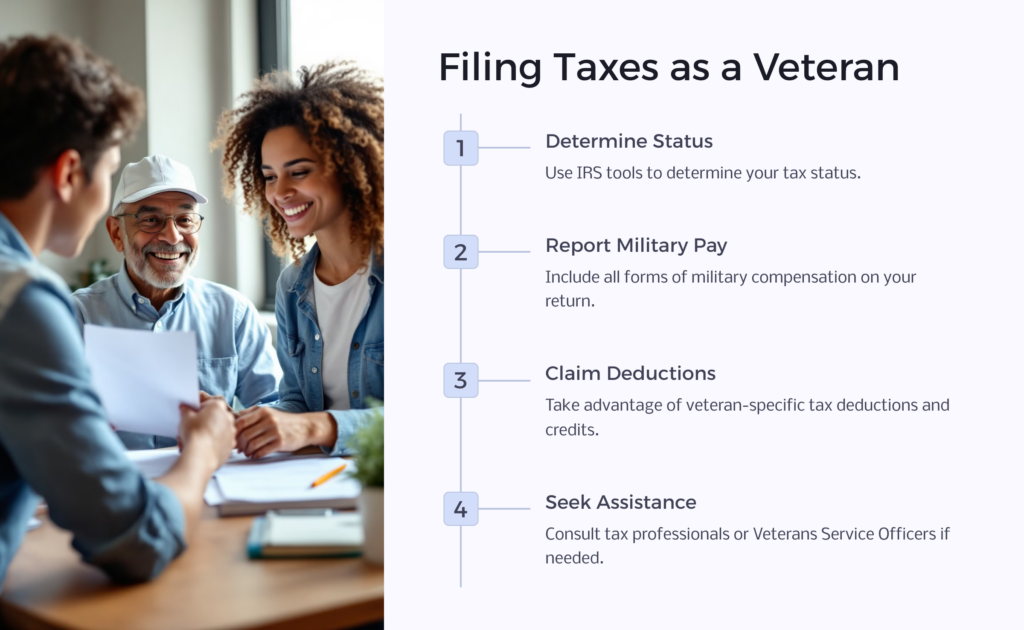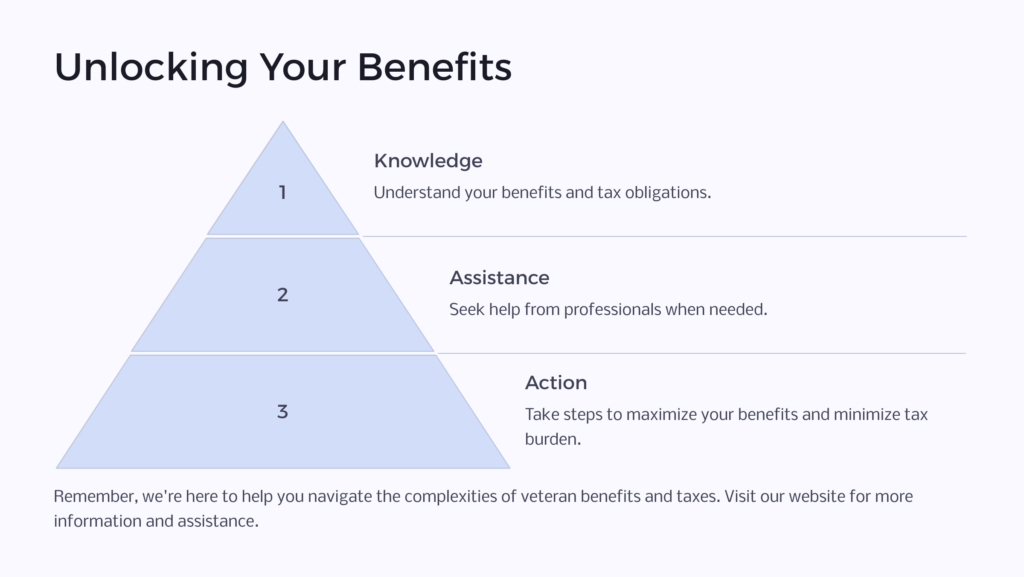
The short answer is no; VA disability is not taxable. You do not have to report your VA disability payments as income on your tax return. This is true regardless of the type or severity of your disability and regardless of whether you receive your benefits as a lump sum or as monthly payments. It is important to note that this only applies to VA benefits. Other types of Veterans Affairs compensation, such as retirement pay, may be taxable, but we will discuss this in further detail later in the article.
Do I have to file taxes if I receive Social Security?
Whether or not you have to file taxes if you receive social security depends entirely on your total income for the year. If your only income for the year is from social security, you may not have to file a tax return. However, if you have other sources of income, such as a part-time job or investment income, you may be required to file a tax return.
The IRS uses a formula to determine whether or not you have to file a tax return based on your income, filing status, and age. In addition, you can use the IRS’s Interactive Tax Assistant to determine if you need to file a tax return.
Do I have to report my VA disability income on my taxes?
No, you do not have to report your VA disability income on your tax return. As we mentioned earlier, VA disability benefits are not taxable. This means you do not have to report them as income, and you do not have to pay taxes on them.
Do I get a 1099 for my VA disability?
No, you will not receive a 1099 form for your social security disability benefits. So you do not have to report your VA disability income on your tax return. As we mentioned earlier, they are not taxable, so you will not need to fill out a 1099 or pay taxes on them.
What veteran pay is considered taxable income?

While VA disability benefits are not taxable, other types of veteran pay may be subject to taxation. Here are some examples:
- Retirement Pay: If you receive military retirement pay from Veterans Affairs, it may count as taxable income. The taxable amount depends on various factors, such as your age, the amount of your military retired pay, and your tax bracket.
- VA Disability Compensation: If you receive supplemental security income as a disabled veteran, those disability payments may be taxable. The taxable amount depends on the reason for your separation from the military and the amount of severance pay.
- GI Bill benefits: If you receive GI Bill benefits, they may be taxable. The amount that is taxable depends on the specific type of VA benefit you receive and how you use it.
It is important to note that even if a portion of your veteran payment is taxable, you may be eligible for certain tax breaks and deductions that can reduce your overall tax liability.
What taxes do veterans need to worry about?
As with any other individual, veterans may be subject to a variety of taxes depending on their specific circumstances. However, there are a few taxes that veterans may want to pay particular attention to:
- Federal Income Tax: Veterans, like all U.S. citizens, are subject to pay federal income tax on their earnings. This includes any disability compensation or retirement pay received from the military.
- State Income Tax: Depending on the state in which they reside, veterans may also be subject to state income tax on their earnings.
- Property Tax: Veterans who own property may be subject to a property tax depending on their state or local jurisdiction.
- Sales Tax: Veterans who make purchases may be subject to sales tax which varies by state.
- Estate Tax: If a veteran passes away and leaves an estate worth more than a certain amount (currently 11.7 million for individuals and 23.4 for married couples), their estate may be subject to federal estate tax.
It is important to note that all veterans will be subject to all of these taxes, and the specific tax obligations of a veteran will depend on their individual circumstances. Veterans may want to consult with a tax professional to ensure they understand their tax obligations and take advantage of any available tax benefits.
How do I file taxes as a veteran?

As a veteran, you would file taxes the same way as any other taxpayer. However, there are certain tax benefits and deductions available to veterans that you may want to be aware of. Here are some key things to keep in mind when filing your taxes as a veteran:
- Determine your tax status: The first step in filing your taxes as a veteran is to determine your tax status. This will depend on your income, filing status, and other factors. You can use the IRS’s online tool to determine your status.
- Claim your military pay: if you received military pay in the tax year, you will need to report it on your tax return. This includes basic pay allowances and other forms of military compensation.
- Consider tax deductions: Veterans may be eligible for certain tax deductions, such as the deduction for charitable contributions to veterans organizations or the deduction for expenses related to seeking employment. Look into any opportunity for a disabled veterans exemption.
- Take advantage of tax credits: Tax credits are also available to veterans, such as the Earned Income Tax Credit (EITC) and the Child Tax Credit (CTC).
- Get help if you need it: If you have questions or need help filing your taxes as a veteran, you can contact a tax professional or a Veterans Service Officer (VSO) for assistance.
Overall, filing your taxes is similar to filing your taxes as any other taxpayer. However, there may be certain tax benefits and deductions that are available to you, so. Therefore, it is important to do your research and take advantage of these opportunities.
Unlocking Your Benefits

We believe in helping those struggling to get the knowledge and benefits they deserve. We aim to help the underserved in our society get the assistance they are in need of. Our staff understands how daunting and emotionally draining some of these processes can be, so we aim to help with patience and knowledge to help you in any way we can. Be sure to check out our website to answer any further questions you may have. We are always happy to help.
 Benefits.com Advisors
Benefits.com Advisors
With expertise spanning local, state, and federal benefit programs, our team is dedicated to guiding individuals towards the perfect program tailored to their unique circumstances.
Rise to the top with Peak Benefits!
Join our Peak Benefits Newsletter for the latest news, resources, and offers on all things government benefits.


















